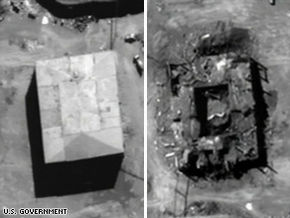And so far, they’ve been right. The US invaded Iraq due in part to a suspicion of Weapons of Mass Destruction, yet we turned out to be incorrect. North Korea has now tested a hydrogen bomb capable of decimating the five boroughs of New York City with one hit, yet we’re reluctant to act. No intervention has been more necessary, especially considering the links between Iran and North Korea, and by the transitive property Hamas and Hezbollah, two groups that have shown suicidal tendencies.
If we acquiesce in North Korea being a nuclear state, an outcome that we should never stomach, then will do the same in Iran. Unless, of course, Israel acts like it did in 1981 in Operation Babylon, 2007 in Operation Orchard, and just last week in southern Syria. Israel understands that allowing your sworn enemy to develop the ability to push your country into the sea is tantamount to suicide, especially when it’s not clear that they’re rational actors, and therefore doesn’t wait for foreign approval to act in its own national interest. Unfortunately American statesmen have been far more naïve.

We ask China and Russia to solve the problem, as if we suffer historical amnesia from world diplomatic history since World War II. We threaten to unleash fire and fury on North Korea, as if words alone will incapacitate their nuclear facilities. And we think that the United Nations has a role in resolving this conflict as if institutions of that stripe weren’t the very thing that motivated North Korea to develop a nuclear deterrent in order to preserve it’s own sovereignty. The result of all of the above has been a steady improvement of North Korea’s conventional and nuclear weapons arsenal’s for decades, and continued escalation to the point of the US and North Korea being on the brink of an all out war. It’s time to admit we’ve failed, and right our wrong.Kim Jong-Un cannot have nuclear weapons. This isn’t Soviet Russia or a liberal democracy; this is a mad hijacker who holds Seoul hostage and builds a nuclear arsenal while collectively starving his people and convincing them that he is God. This is a man who knows that Seal Team Six is on the Korean peninsula actively planning his decapitation, yet still conducts nuclear tests and fires ballistic missles over Japan, both highly provocative moves that warranted an immediate military response. This is a man that, furthermore, may rather commit suicide than relinquish his nuclear arsenal.
Some intelligesta, such as Ian Bremmer, say they’re willing to accept that Kim has nuclear weapons and there’s nothing we can do about it. This is a common strategic fallacy, as it assumes that as North Korea refines and bolsters it’s nuclear and conventional weapons program it will simultaneously become more responsible. What it ignores is the decades of history of American-North Korean relations, as the stronger North Korea has become, the closer we have gotten to conflict. What makes us think the situation won’t keep spiraling down that path? Do we really need to wait until Kim has 20 nuclear tipped ICBM’s that can reach the US to say that’s it, or are we best to resovle the situation now? Who comes after Kim?

The only two options we have left are allowing Kim to become a nuclear superpower, as Bremmer suggests, and taking immediate military action. The first option shouldn’t even be considered, especially due to the proliferation that would ensue. The latter option, therefore, is the only one.
It's also the most cautious option. There's nothing dovish or non-imperialist about letting Kim Jong-Un devise the means to end the world. In this case, it's more imperialist to not intervene rather than too intervene, as the evident outcome of not doing so is more death and suffering.
A preemptive military strike on North Korea is inevitable, and the longer we wait the worse it will be when it does happen, so the best result would be achieved through acting today as opposed to in 2030. The consequences will be tragic, but far less tragic than in the future.
Trump should act swiftly, and make it clear to North Korea that any retaliation towards Seoul or Tokyo will result in their countries total decimation. This strategy may not be appealing in the short-run, however future generations will thank us for removing a clear evil from the planet once and for all.
So what are we waiting for?